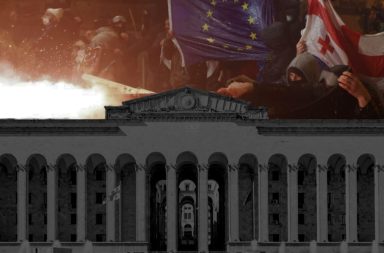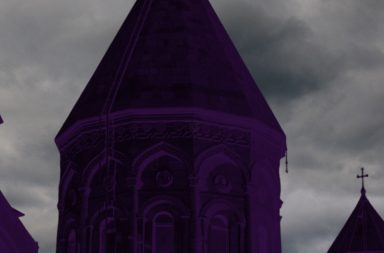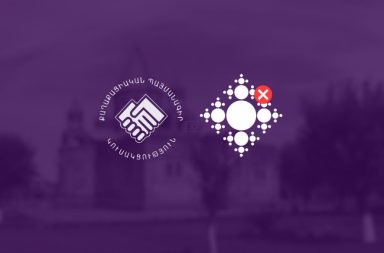On June 7, the National Assembly of Armenia announced that the next general election would be held on June 7th, 2026. The current government and its opposition appear to have taken it as a call to action.
That same day the ‘With Honor’ faction of the Armenian assembly initiated a motion to impeach the president, now spearheaded by the ‘Armenia’ faction. To date, the motion has secured 30 of the 36 signatures it needs to be formally submitted. Should Pashinyan be impeached, extraordinary presidential elections would be held on the fortieth following day.
On the other side of the bench, the Armenian Government has begun what appears to be a systemic persecution of opposition figures, accusing high-profile businessmen and clergymen of a coup attempt.
At the center of the events is the Armenian Apostolic Church (AAC) which has strongly opposed Pashinyan’s Civil Contract Party (CCP) following Pashinyan’s recent posting on social media.
The escalation began on May 30th, as Pashinyan resorted to social media, referring to churches as “storing rooms”, downplaying their historic, cultural, and spiritual significance.
He went on to reiterate long-circulated rumors regarding His Holiness Catholicos Karekin II, the head of the Armenian church, having broken his vow of chastity and fathering children. Such rumors, if true, would necessitate the Catholicos being deemed unfit for office. Pashinyan went on to suggest that the position should be democratically elected, bringing the church firmly into the sphere of government.
Such an action invites debate about the role and power of the Armenian church. Historically an independent, protective bastion for Armenian culture and life, Pashinyan’s attempts to denigrate and bring the church into active political life in Armenia threaten its independence, opening avenues for governmental pressure and control that remove key protections from Armenian people.
Moreover, changes such as these would require amendments to the Armenian constitution. Many fear this would allow Pashinyan to succumb to Turkish and Azerbaijani demands to remove those portions of the constitution that relate to Artsakh.
Pashinyan’s remarks were followed by a series of criticisms and denouncements that led to the high-profile detainment of one of Armenia’s richest men, Samvel Karapetyan of the Tashir group, a Russian Armenian businessman whose net worth Forbes estimates to sit around $4 billion.
Karapetyan was placed in a 2-month pre-trial detention on June 18th. Shortly thereafter the government announced plans to nationalize the Electric Networks of Armenia, part of the Tashir group, and Armenia’s Food Safety body launched inspections at 30 establishments owned by Tashir Pizza, 6 of which, along with the Tashir Dairy factory, were operationally suspended.
On June 20th, as domestic dwellings in the village of Nerkin Hand in the Syunik Region, much of which remains under illegal occupation, endured gunfire from Azerbaijani forces, Pashinyan flew to Istanbul for long-awaited talks with President Erdogan.
The meeting’s agenda included the restoration of diplomatic ties and reopening of the Turkish-Armenian border which has remained closed since 1993.
Two days following the meeting, on June 22nd, the Organization of Islamic Cooperation met in Turkey and called on Armenia to address the topic of normalizing relations between Armenia and Azerbaijan. In their Istanbul Declaration, they called “on Armenia to remove the remaining legal and political obstacles” to a peace agreement.
The Iranian foreign ministry has since suggested that issues raised in collective documents may not reflect the position of individual member states.
That same day the son of Samvel Karapetyan was detained. Three days later, on June 25th another wave of arrests, detentions, and house searches began.
Archbishop Bagrat Galstanyan of the ‘Tavush for the Homeland’ movement, his assistant Movses Sharbatyan, Artsakh National Assembly member Davit Galstyan, representative of the ‘Call of Sons’ movement Ara Rostomyan, member of the ARF Supreme Body Igor Sargsyan, businessman Tigran Galstyan, colonel Mihran Makhsudyan, and pro-church blogger Armen Aleksanyan were all detained.
The homes of former members of the National Assembly Vahe Hakobyan and Artsakh National Assembly president Ashot Danielyan were searched.
On June 27th, the situation was further escalated as the National Security Services stormed Holy Etchmiadzin, the epicenter of the church before Archbishop Mikael Adjapahyan surrendered to their custody.
The Government is justifying its actions with hitherto unconfirmed reports that it is responding to evidence of a plot to storm government buildings, replace ministers, and overthrow Armenia’s democratically elected government.
Whilst these reports are unconfirmed, various political scientists are pointing toward the recent election of Bidzina Ivanishvili in Georgia, an election that is widely seen as having been a coordinated Russian-backed overthrow of Georgia’s democratic system.
Whilst it is plain to see that Pashinyan’s overthrow is in Russia’s interest, such accusations would suggest complicity between the Russian government and the ARF, Armenia’s longest-standing and most international political party, that many find difficult to swallow.
Regardless of the motivation, the Pashinyan government is operating against opposition figures with a heavy hand. From churchmen to business leaders – it is worth noting that the government has not secured the release of Ruben Vardanyan, an popular and high-profile businessman in illegal detention in Azerbaijan – credible sources of opposition are not only facing accusations of treason, but raids on their homes and suspensions of their businesses.
Pro-opposition messaging has also been taken down, notably the TV screens on Northern Avenue, and as of June 30th, posters supporting Karapetyan have been dismantled from the facade of the Tashir Shopping Center.
Without credible evidence, we must ask, what constitutes a coup attempt? Where is the line between criticism and treason? What does such an overt attack on the church signify?With elections only twelve months away, the one thing we do know is that there will only be further instability for this already divided nation.


